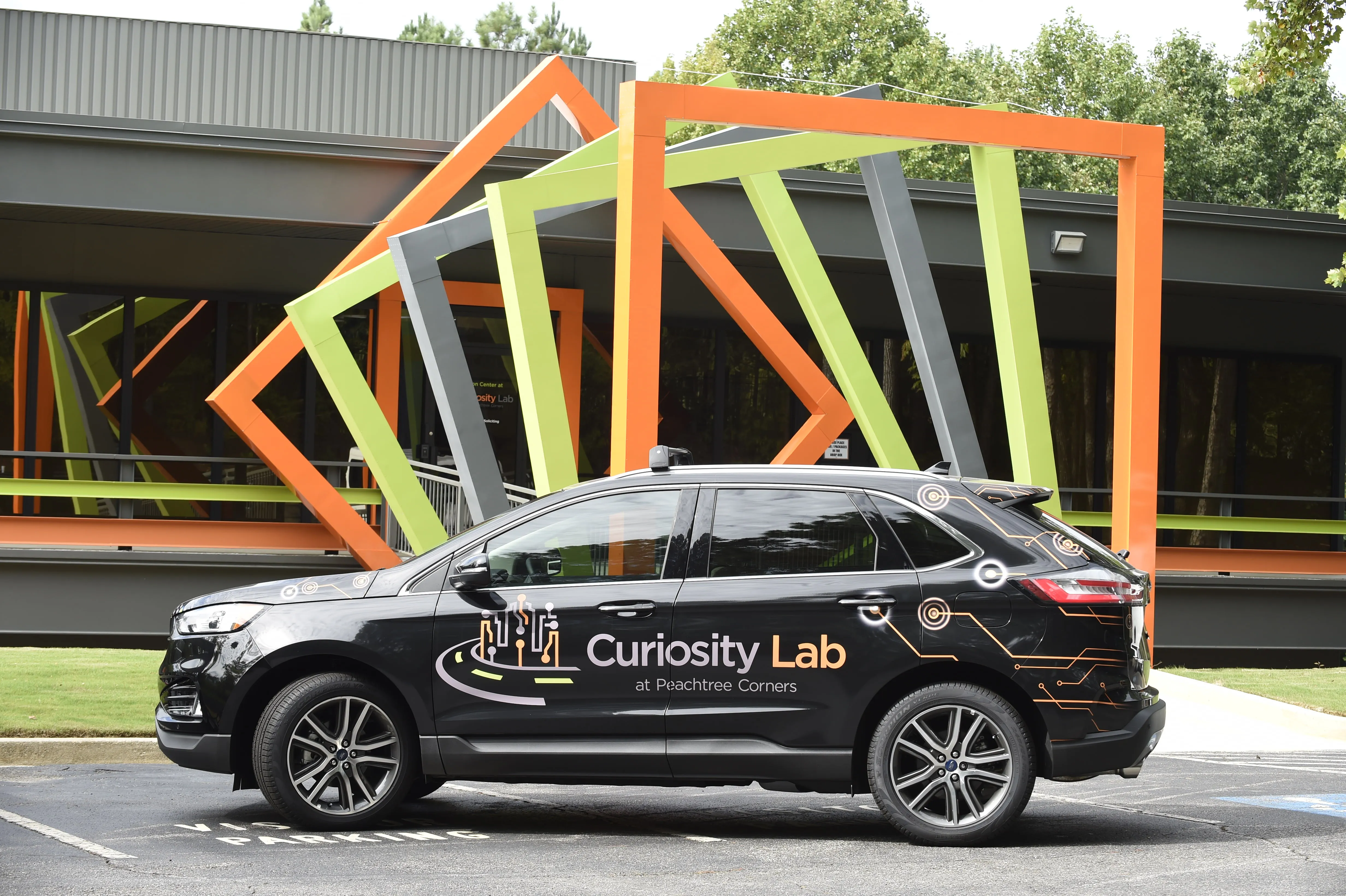
Peachtree Corners in the US state of Georgia has unveiled a test vehicle to help companies develop mobility and autonomous technologies in a living laboratory environment.
Curiosity Lab at Peachtree Corners offers a real-world living laboratory environment where the test vehicle interacts with local residents. It includes a public street that is insured for both driven and autonomous vehicle (AV) activity.
Peachtree Corners says the Ford Edge-based test vehicle is equipped with Level 3 autonomous capabilities on an open-source platform.
Brandon Branham, assistant city manager of Peachtree Corners, says: “Companies have the opportunity to develop new technologies on an open source mobility platform alongside other emerging solutions, while also leveraging actual smart infrastructure wholly owned by the city – not proprietary, closed platforms in closed track environments."
"The Ford Edge based test platform here operates in a living lab environment alongside residents that are walking and driving on the same public street.”
The city choose the Ford Edge platform due to easy developer access to historical AV datasets.
The test vehicle utilises a range of systems, including Bosch Video as a Sensor (VaaS) cameras, intelligent traffic signals, dedicated short-range communication units and next-generation cellular.
It is also equipped with a large rooftop rack, allowing companies to attach their own Lidar and other sensors for testing.
Data from the sensors and devices on the test vehicle as well as across the city infrastructure is analysed and made available to engineers through the city's central control room.
Curiosity Labs is inviting companies working on full autonomous driving systems, mapping, Lidar, camera and computer vision, radar and Vehicle to Everything systems to test.








